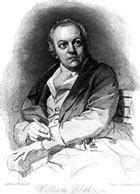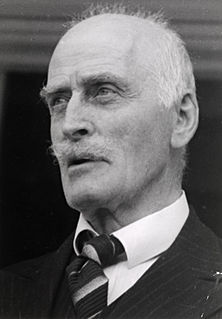A Quote by Robert Blair
Related Quotes
The Man of Genius may at the same time be, indeed is commonly, an Artist, but the two are not to be confounded. The Man of Genius,referred to mankind, is an originator, an inspired or demonic man, who produces a perfect work in obedience to laws yet unexplored. The artist is he who detects and applies the law from observation of the works of Genius, whether of man or nature. The Artisan is he who merely applies the rules which others have detected. There has been no man of pure Genius, as there has been none wholly destitute of Genius.
To copy Nature? A boy with a camera can do that. To get the spirit of Nature? A woodman or a shepherd can follow the trail of the whistling wind to hoarded sunshine in distant wolds. But to interpret Nature and inform it with a human personality that rises above it, invokes the divine in it, is the work of genius.
The Red Cross in its nature, it aims and purposes, and consequently, its methods, is unlike any other organization in the country.It is an organization of physical action, of instantaneous action, at the spur of the moment; it cannot await the ordinary deliberation of organized bodies if it would be of use to suffering humanity,[ellipsis in original] it has by its nature a field of its own.
The psychical condition of men's minds may be compared with a set of bells close together, and so arranged that in the ordinary man a bell rings only when one beside it sounds, and the vibration lasts only a moment. In the genius, when a bell sounds it vibrates so strongly that it sets in action the whole series, and remains in action throughout life. The latter kind of movement often gives rise to extraordinary conditions and absurd impulses, that may last for weeks together and that form the basis of the supposed kinship of genius with insanity.
Genius is its own reward; for the best that one is, one must necessarily be for oneself. . . . Further, genius consists in the working of the free intellect., and as a consequence the productions of genius serve no useful purpose. The work of genius may be music, philosophy, painting, or poetry; it is nothing for use or profit. To be useless and unprofitable is one of the characteristics of genius; it is their patent of nobility.
Very few men can speak of Nature, for instance, with any truth. They overstep her modesty, somehow or other, and confer no favor.They do not speak a good word for her. Most cry better than they speak, and you can get more nature out of them by pinching than by addressing them. The surliness with which the woodchopper speaks of his woods, handling them as indifferently as his axe, is better than the mealy-mouthed enthusiasm of the lover of nature. Better that the primrose by the river's brim be a yellow primrose, and nothing more, than that it be something less.




































